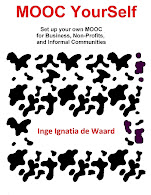Campus Paris-Saclay, la grande université va voir le jour en 2014 : entretien avec Dominique Vernay, son président
 Blog "Il y a une vie après le bac" d'Olivier Rollot. Rapprocher l’université Paris-Sud (Orsay), l’École Polytechnique ou encore HEC dans un grand ensemble pluridisciplinaire de dimension mondiale, c’est l’objectif du Campus Paris-Saclay, qui donnera naissance à une véritable université de 60 000 étudiants le 1er janvier 2014. À sa tête depuis 2011, Dominique Vernay a dû affronter bien des tempêtes mais est aujourd’hui résolument optimiste pour un projet qui mobilise près de 2,5 milliards d’euros.
Blog "Il y a une vie après le bac" d'Olivier Rollot. Rapprocher l’université Paris-Sud (Orsay), l’École Polytechnique ou encore HEC dans un grand ensemble pluridisciplinaire de dimension mondiale, c’est l’objectif du Campus Paris-Saclay, qui donnera naissance à une véritable université de 60 000 étudiants le 1er janvier 2014. À sa tête depuis 2011, Dominique Vernay a dû affronter bien des tempêtes mais est aujourd’hui résolument optimiste pour un projet qui mobilise près de 2,5 milliards d’euros.
Olivier Rollot : Depuis son lancement en 2008, la création de la grande université Paris-Saclay est tout sauf une promenade de santé. Aujourd’hui tout va bien ?
Dominique Vernay : Notre objectif est de créer une université fédérale ayant une marque forte, sur le modèle par exemple de Cambridge. Mais comment chaque établissement prend-il sa place dans cet ensemble qui sera visible mondialement ? C’est logique qu’il y ait eu des difficultés quand on veut rapprocher autant d’institutions de grand renom, qui sont souvent les meilleures dans leur spécialité et veulent préserver leur marque. Suite...







/https%3A%2F%2Fprofilepics.canalblog.com%2Fprofilepics%2F1%2F0%2F1076071.jpg)